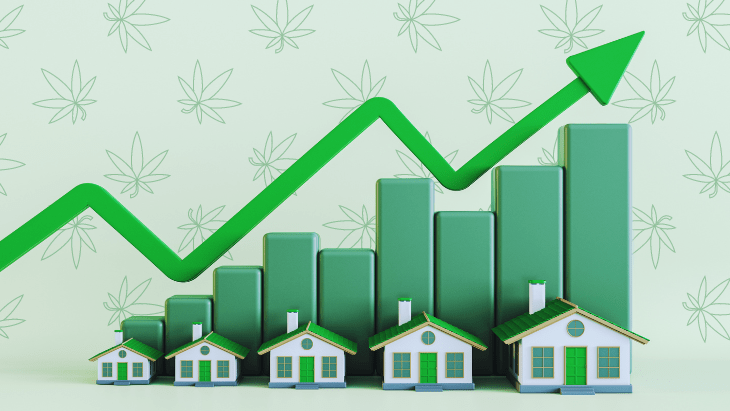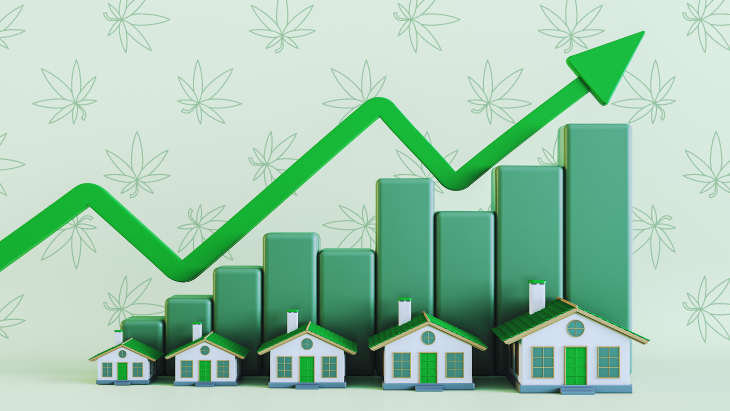
Homes experience significantly greater appreciation in value in states where the adult use of cannabis is legal as compared to those jurisdictions where it is not, according to an analysis provided by Clever Real Estate.
“States with legal recreational cannabis have seen home values climb by $222,958 over the past 15 years, compared to $162,631 in states where it is illegal — a $60,327 difference,” authors of the report determined.
They added, “In 2024, the average home in a recreational state was worth $447,635 — about 39 percent more than the typical home value of $320,904 in states where cannabis cannot be used recreationally.” Conversely, nine of the ten states with the lowest home value growth over the past 15 years have not legalized the adult-use cannabis market.
“Despite lingering stereotypes and outdated fears, misconceptions about cannabis legalization and its effect on the housing market are finally fading,” the study’s authors concluded. “Cannabis isn’t dragging down home values. It’s helping them grow, and states that have yet to legalize it are missing out on thousands in potential home value appreciation.”
The report’s findings are consistent with those of other analyses reporting an association between the establishment of legal marijuana businesses and elevated home values.
“These data should mitigate concerns that the establishment of regulated adult-use marijuana markets negatively impacts community safety and prosperity,” NORML’s Deputy Director Paul Armentano said. “Rather, cannabis legalization is a proven economic driver. Regulated markets create jobs, disrupt the underground marketplace, and provide for new tax revenues that are redirected back into the local community — resulting in greater economic growth and prosperity, in addition to safer communities.”
The full text of the report is available online. Additional information is available from NORML’s Fact Sheet, “Societal Impacts of Cannabis Dispensaries/Retailers.“
Related
Medical Disclaimer:
The information provided in these blog posts is intended for general informational and educational purposes only. It is not a substitute for professional medical advice, diagnosis, or treatment. Always seek the advice of your physician or other qualified healthcare provider with any questions you may have regarding a medical condition. The use of any information provided in these blog posts is solely at your own risk. The authors and the website do not recommend or endorse any specific products, treatments, or procedures mentioned. Reliance on any information in these blog posts is solely at your own discretion.






